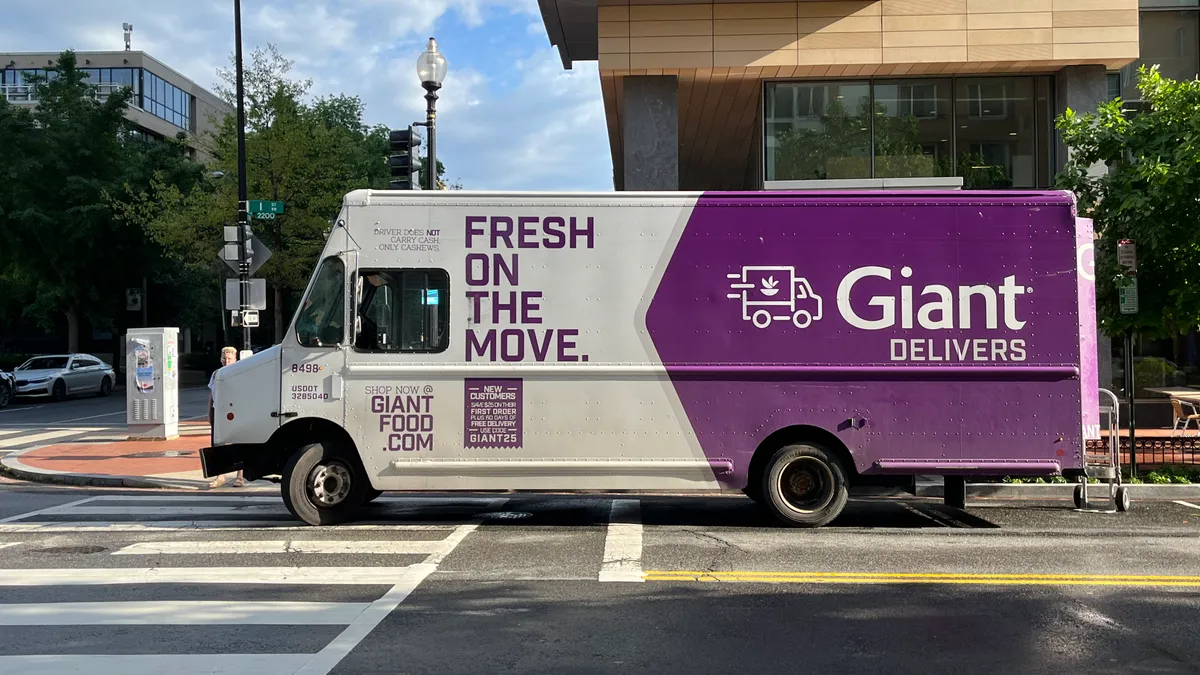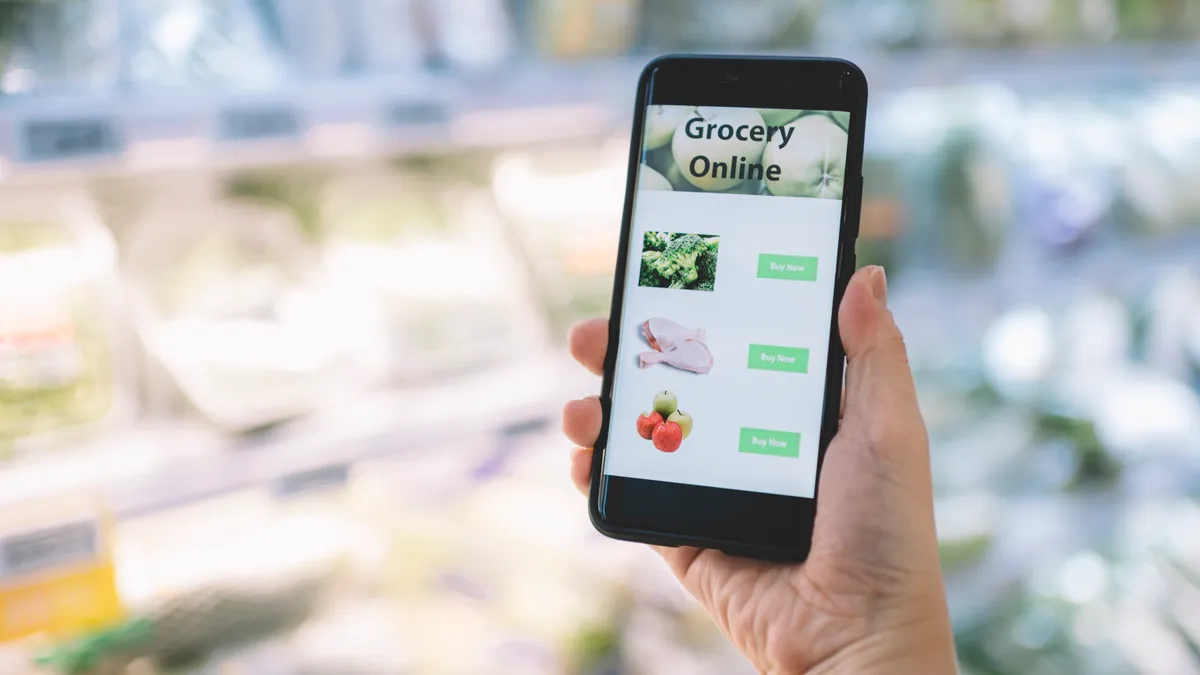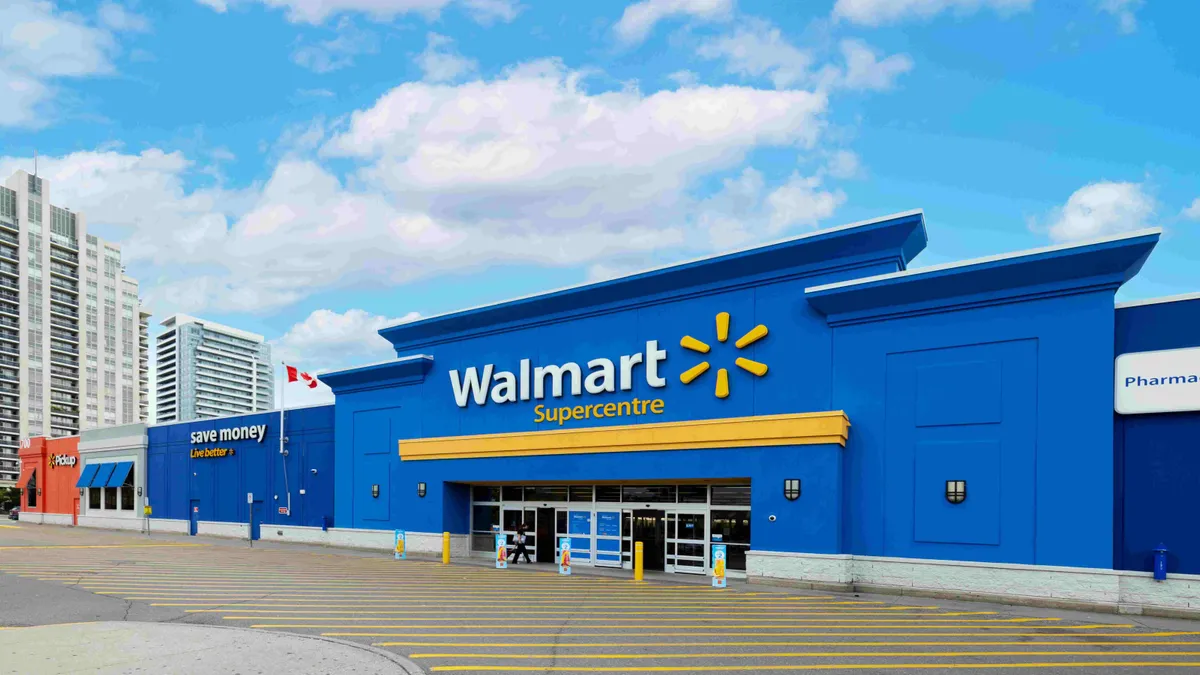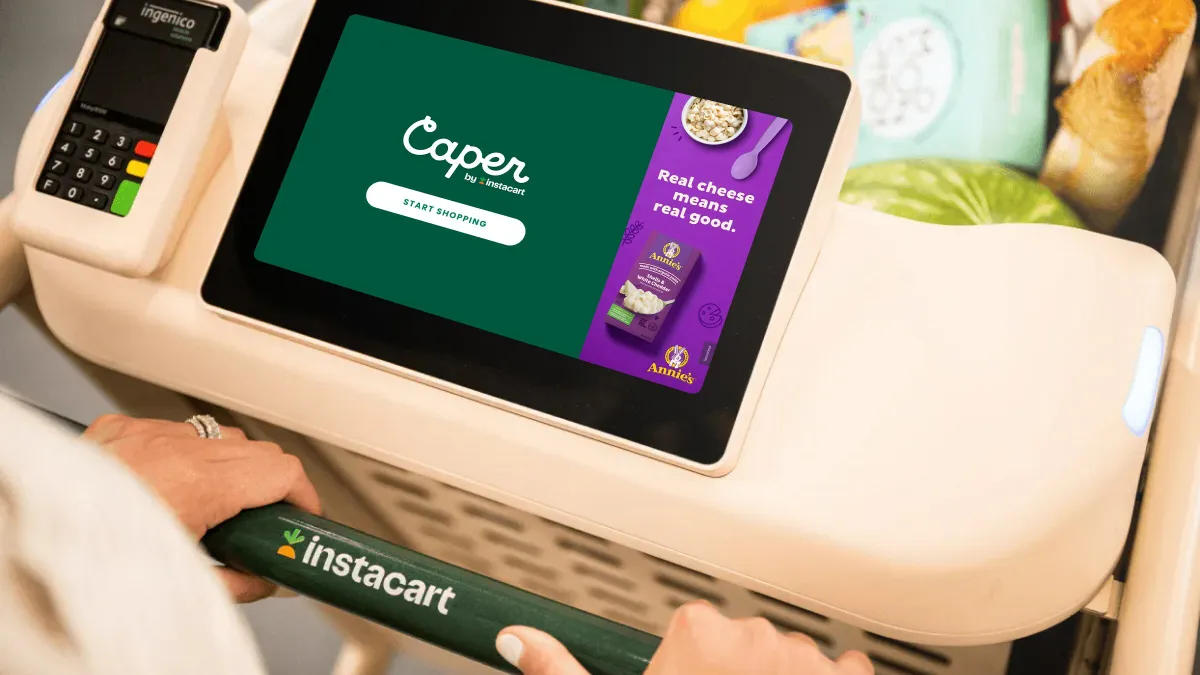The Friday Checkout is a weekly column providing more insight on the news, rounding up the announcements you may have missed and sharing what’s to come.
Giant Food’s disclosure this week that it is rethinking how it manages grocery deliveries — and shuttering three order-assembly facilities in the process — is a stark reminder that e-commerce remains very much a work in progress for food retailers.
The mid-Atlantic chain has so far provided little clarity about its plans to develop what a spokesman described as a “localized fulfillment model.” The company indicated, however, that it wants to provide faster service, more delivery slots and access to more products, suggesting that it has concluded that using regional centers isn’t the best way to serve online shoppers.
Giant painted a much different picture for its digital business just a few months ago when the Ahold Delhaize chain heralded its new online fulfillment center in Manassas, Virginia, — now slated for closure — as a way to expand its grocery delivery services to more households and broaden the availability of products from local suppliers. The company is also closing facilities in Maryland and Delaware as part of its efforts to retool its e-commerce operations.
The Virginia center’s opening in May built on Giant’s announcement last year that it had lowered delivery fees and also stopped charging shoppers a fee for pickup — changes that followed the chain’s decision in late 2021 to eliminate delivery charges for mid-week e-commerce orders.
While Giant’s latest moves are coming against a backdrop of decreased shoppers for online grocery that analysts say could last into next year, they also suggest that using centralized fulfillment centers to handle online orders could be a strategy whose time has passed. As The Wall Street Journal reported on Thursday, Target has seen success in using delivery facilities that are closer to shoppers to fulfill orders, and Amazon and Walmart have also been adjusting how they distribute goods to customers.
Giant’s course change comes as conventional supermarket operators navigate an increasingly challenging digital shopping landscape.
Delivery, in particular, has lately been under pressure as overall digital grocery sales have fallen in recent months. The number of households that placed delivery orders declined in July even as pickup gained momentum. Factor in the higher prices that have been baked into people’s grocery bills by months of powerful inflation, and the fact that Giant is reconsidering its delivery strategy hardly seems surprising.
In case you missed it
Unique marketing choices
On Thursday, Save A Lot shared that it used 7,200 cans to create giant silo and barn structures at the Kentucky State Fair. The cans came from 300 donated cases of Pickwell Farms canned vegetables. A sign by the sculptures notes their connection to Save A Lot. After the fair concludes on Aug. 27, all 7,200 cans will be donated to various Louisville, Kentucky, charities.
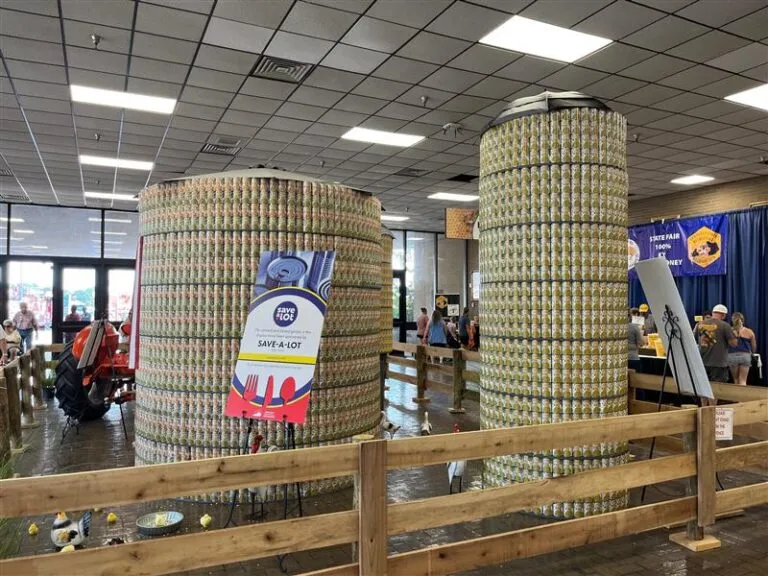
Meanwhile, H-E-B announced this week it linked up with filmmakers on a five-film docuseries that highlights how Texans and nature-focused organizations are working to conserve wildlife habitat, landscapes and parks across the state. The films will be screened in November as part of the Alamo Drafthouse Rolling Roadshow.
New state initiative helps grocers feed food deserts
The Illinois Grocery Initiative, a multi-pronged plan signed into law by Gov. JB Pritzker last Friday, invests $20 million in food deserts across the state, with the majority of funding going toward supporting grocers. As part of the initiative, existing and new grocers can receive support through incentive opportunities, per a press release from the governor’s office. It also includes wrap-around support, such as technical assistance, feasibility studies and marketing, to local governments and independent grocers opening grocery stores in food deserts.
Grocers receiving grant support from the initiative will be eligible for a program that includes tax exemptions on utilities and building materials.
Frictionless checkout comes to college c-store
As frictionless checkout soft-launches in the grocery space, the technology is making progress rolling out in convenience stores, especially ones on college campuses. A retrofitted, AiFi-powered frictionless c-store recently opened at the University of San Diego, marking AiFi’s second campus convenience store.
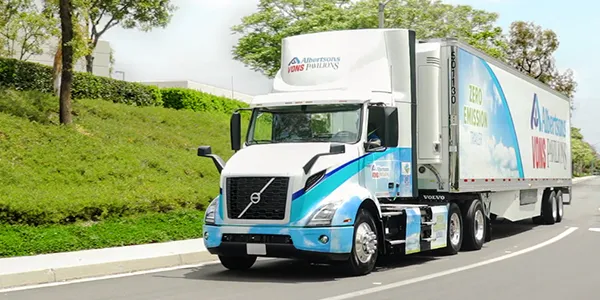
Number of the week: 21%
That is the percentage by which Albertsons reduced its carbon emissions between 2019 and 2022, according to the grocer’s most recent Environmental, Social and Governance report, which was released Monday. CEO Vivek Sankaran said in the report that the grocer achieved this by completing more than 1,100 energy efficiency and 85 refrigeration projects as well as recycling over 850 million pounds of cardboard and 27 million pounds of plastic film and bags.
This progress builds on Albertsons’ goal of reaching a 47% carbon reduction in its operations by 2030, per the report.
What’s ahead
Dollar General earnings
The discount retailer plans to release its fiscal 2023 second-quarter financial results on Thursday.
Latest jobs report
The U.S. Bureau of Labor Statistics is set to release its latest employment report next Friday, providing new insight into the grocery industry workforce during August.
Impulse Find
Publix is a place for Pub Subs, not pups.
Customers are noticing that the Florida grocery chain is laying down the law regarding four-legged animals. According to recent reports, numerous Publix locations have placed signs around entrances stating service animals are the only animals permitted in the store — and, no, emotional support animals do not qualify.
“Under federal law, service animals are dogs or miniature horses trained to perform tasks for people with disabilities. Non-service animals are not allowed in grocery stores by the FDA. Dogs, pets, and other animals whose sole function is to provide comfort, companionship, or emotional support do not qualify as service animals and are not permitted in Publix, even with a doctor’s note,” the Publix signage reads, according to USA Today.


